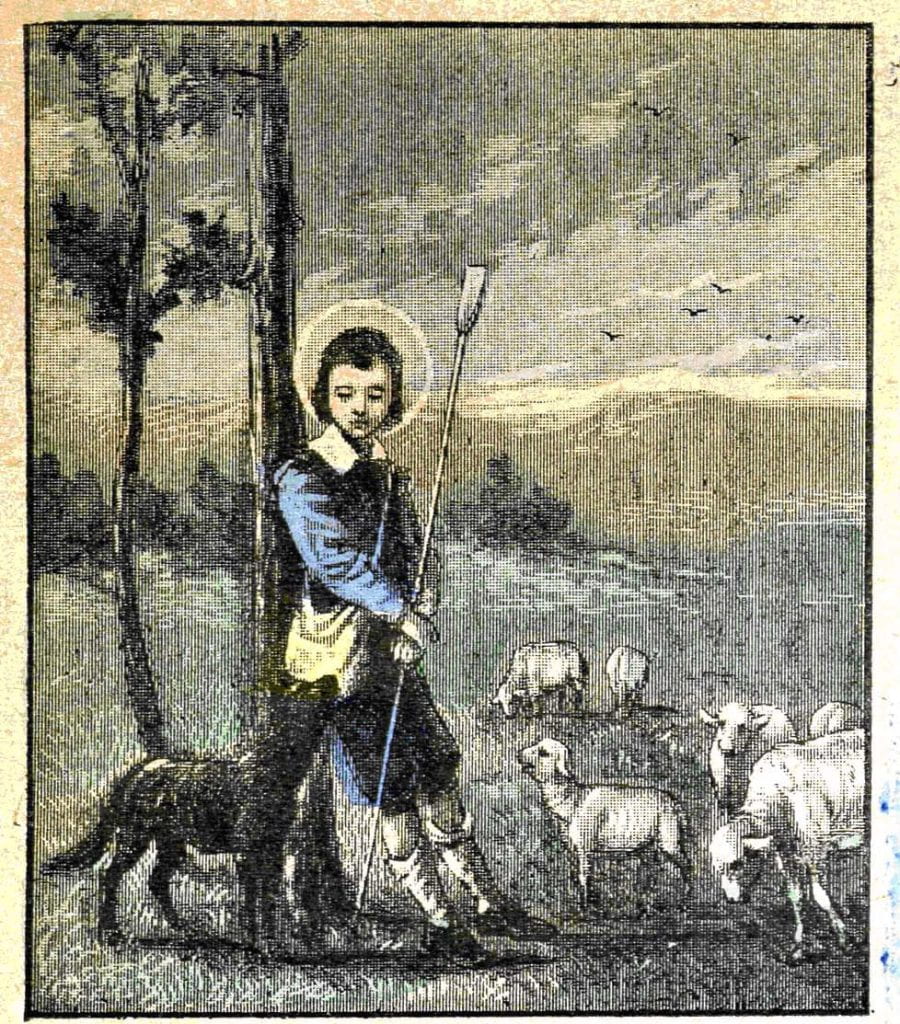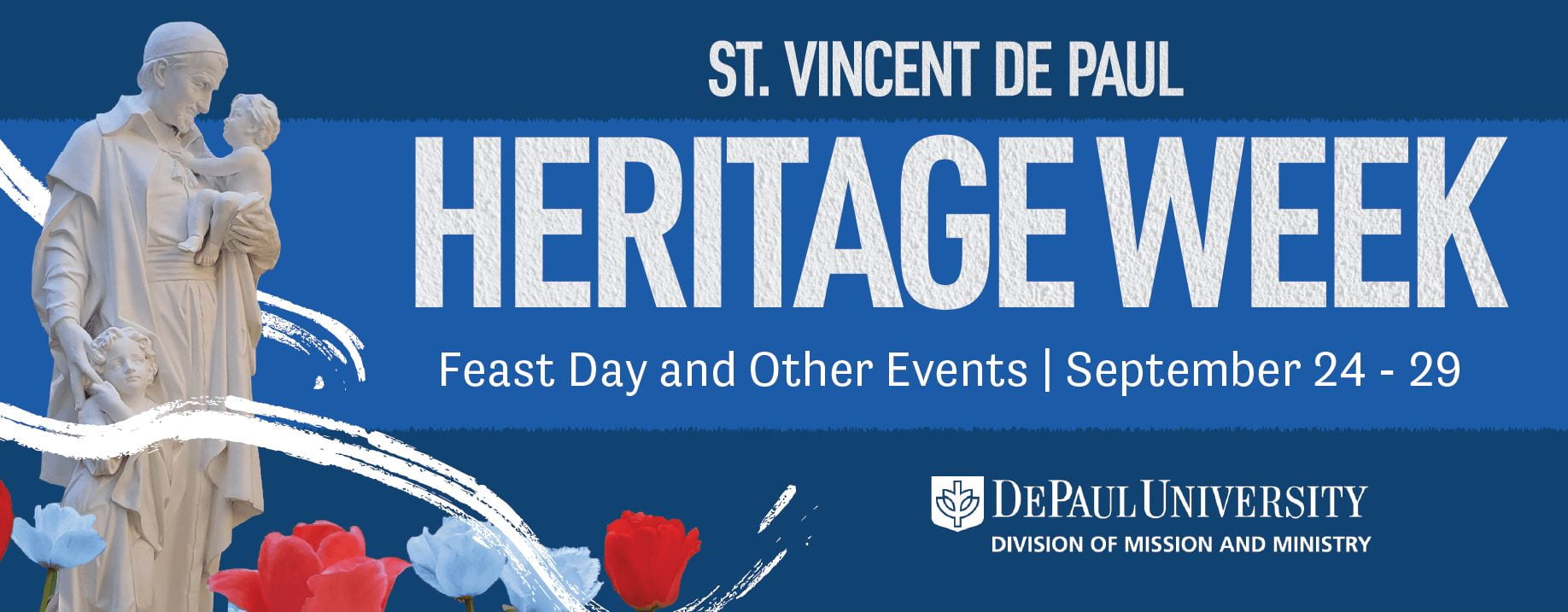Written by: Euan Hague, PhD, Vincent de Paul Professor of Geography and Director of the School of Public Service and the Student Urban Research Corps. Recipient of the Cortelyou-Lowery Award from the College of Liberal Arts and Social Sciences in 2024.

In a letter to Monsieur Horcholle written in June 1650, Vincent stated, “I will always welcome joyfully any opportunity that comes my way to be of service to you.” [1] Service to others runs through DePaul in all its aspects and operations. But what does it mean to serve, and how should service to others be pursued? In over twenty years as a faculty member, I have put service to the community at the center of my own teaching and scholarship. The challenge is always the relationship between the “opportunities that come my way to be of service,” the manner in which we serve others, and the coordination of that work. Community collaborations are not one-off meetings; they need consistent negotiation and management, both with the organization and with the students working on projects. Such work is itself service, because through it we channel the personalism and Vincentian commitment that “it is not enough to do good. It must be done well.” [2]
In 2021, with support from an external funder, I conceived of the Student Urban Research Corps, which I now lead. It is housed in the College of Liberal Arts and Social Sciences. Each year, a group of fifteen to twenty undergraduate and graduate students take on service projects to bring their skills into practice, working on community-defined research projects that assist organizations in their missions. From helping Lucky Jefferson to assess the publishing landscape faced by Black and other ethnic minority authors, to mapping the impactful events delivered by Kids Enjoy Exercise Now (KEEN), in the past three years SURC projects have aided a dozen community organizations. In some instances, a community organization reaches out, not knowing quite what they want or how to achieve it, but knowing that something is needed, and that they would like DePaul’s support to attain it. In those cases, I meet with the organization, listen, learn about their needs and community, and make suggestions about the capacities and skills sets that our students can bring to understanding an issue. In other cases, I return to an organization that I’ve partnered with in the past, or an organization that I have become familiar with through other interactions and ask what projects would help to build capacity. In these conversations, I echo Madame de Gondi’s asking of Vincent, “What must be done?” [3]

Communities and their members know about themselves. Most do not want academics to impose agendas or questions on them. Rather, we serve by offering help to answer questions, to collaborate on finding solutions, and to enhance the capacity of groups to make decisions about their own futures. Students learn through engaging with organizations and interacting with the community members who have questions to ask and conversations to pursue. “Being able to work with and for community members and organizations through SURC has been a great opportunity to participate in social science research that is truly community-driven,” says Beata Neidhoefer (LAS ’25). “As a sociology major interested in research, I’m wary of the history of social science research as a process often detached from real peoples’ interests and needs. SURC provides a uniquely direct connection between community needs and student researchers’ skills, enabling us to use what we learn in the classroom in an applied, practical way while building technical and transferable skills and building professional relationships with community members.”
Whether DePaul faculty bring the community, through its members, onto DePaul’s campus, or go out, like Vincent, into the community to serve, the common aspect is that it takes work and an investment of time and energy from all parties. It takes time to build trust and collaborations, sometimes months or even years, and it takes time to work on projects that serve both the outcomes of the community and enhance student learning. Yet, this service follows another of Vincent’s calls to action: “Let’s work, let’s work, let’s go to the assistance of the poor country people who are waiting for us.” [4] Although I don’t think underserved and underrepresented communities are necessarily “waiting for us” in 2024, the call to go to assistance still resonates. We cannot only wait for opportunities to serve to come to us. We should seek out places where we can help, where our expertise and resources can make a difference in neighborhoods and communities across Chicago and beyond. Academic institutions are often derided as ivory towers where detached faculty and students talk and write esoterically about subjects. DePaul is different. Our mission, with its commitment to give “special attention to including underserved and underrepresented communities,” is central to the identity of the institution, which means it is central to the work we do as faculty, staff, and students at DePaul. To serve means to collaborate, to learn from residents and community groups, and to share DePaul’s resources, skills and expertise, with both professionalism and personalism.
“You can give me no greater consolation nor render greater service to your neighbor than to place yourself in a condition to serve him for a long time,” Vincent wrote to Jean Martin in May 1648. [5] DePaul has been serving Chicago since 1898. We and our students continue to serve.
Reflection Questions:
- What does it mean to “welcome joyfully any opportunity that comes [your] way to be of service” in your work at DePaul?
- How does your commitment to Vincent’s demand to go to the assistance of the poor reflect in your career at DePaul?
Reflection by: Euan Hague, PhD, Vincent de Paul Professor of Geography and Director of the School of Public Service and the Student Urban Research Corps. He received the Cortelyou-Lowery Award from the College of Liberal Arts and Social Sciences in 2024.
[1] Letter 1230a, “To Monsieur Horcholle, in Neufchâtel,” June 28, 1650, CCD, 4:41. Available online at: https://via.library.depaul.edu/vincentian_ebooks/29/.
[2] This popular quote cited often at DePaul is a rephrasing of Vincent’s words. For the full quote, see: Conference 177, “Repetition of Prayer,” November 25,1657, CCD, 11:389. Available at: https://via.library.depaul.edu/vincentian_ebooks/37/.
[3] This is also a popular rephrasing. For the full quote, see: Conference 1, “The Vocation of a Missioner,” CCD, 11:3.
[4] Conference 177, “Repetition of Prayer,” CCD, 11:391.
[5] Letter 1037, “To Jean Martin, in Genoa,” May 22, 1648, CCD, 3:312. Available online at: https://via.library.depaul.edu/vincentian_ebooks/28/.








